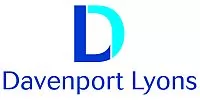The Court of Justice of the European Union (CJEU) decided an Internet Service Provider (ISP), may be ordered to block its customers' access to a copyright infringing website, but the measures it adopts must be reasonable.
Under the EU Copyright Directive, rights holders may apply for an injunction against intermediaries whose services are used by a third party to infringe their rights. The CJEU was asked to interpret this.
Impact
An ISP allowing its customers to access protected subject matter made available to the public on the Internet by a third party without the rights holder's permission is an intermediary whose services are used to infringe copyright. In fact, the CJEU held that ISPs are best placed to bring such infringing activities to an end.
Granting an injunction will prevent unauthorised access to protected subject matter or, at least, make it difficult to access and will seriously discourage users from accessing infringing content. However, the measures taken by the ISP must not unnecessarily deprive users of their fundamental right of access to publicly available information.
The decision reflects the UK Court's decision in the "Pirate Bay" litigation in which the Court refused to rubber-stamp a settlement agreement reached between the ISPs and the rights holders to block access to infringing content, stating that such agreements require judicial oversight in order to protect the rights of Internet users and businesses alike.
Basis for the decision
The ISP in this case UPC Telekabel (UPC) disputed that it should be considered an "intermediary" for the purposes of Article 8(3) of Directive 2001/29, whose services are used to infringe a copyright or related right since it did not have any business relationship with the operators of the infringing website. UPC also claimed (i) that the various blocking measures which may be introduced could, in any event, be technically circumvented, (ii) that some of those measures were excessively costly and (iii) that it was never established that its own customers acted unlawfully.
The CJEU noted that the Directive seeks to guarantee a high level of protection for rights holders and does not require a specific relationship between the person infringing copyright and the intermediary against whom an injunction may be issued. Nor is it necessary to prove that the customers of the ISP actually accessed the protected subject matter made accessible on the third party's website, since the Directive requires that measures taken by Member States in order to conform to the Directive are aimed not only at bringing to an end infringements of copyright, but also at preventing such infringements in the first place.
However, an injunction results in a conflict between copyright and related IP rights and the freedom to conduct a business as well as the freedom of information of Internet users.
The CJEU explained that an injunction simply identifies the end to be achieved, leaving it up to the ISP to determine the specific measures which are reasonable to achieve that end, meaning that there is flexibility. Secondly, an injunction allows an ISP to avoid liability by proving that it has taken all reasonable measures.
UPC Telekabel Wien GmbH v Constantin Film Verleih GmbH and Wega Filmproduktionsgesellschaft mbH.
The content of this article is intended to provide a general guide to the subject matter. Specialist advice should be sought about your specific circumstances.

